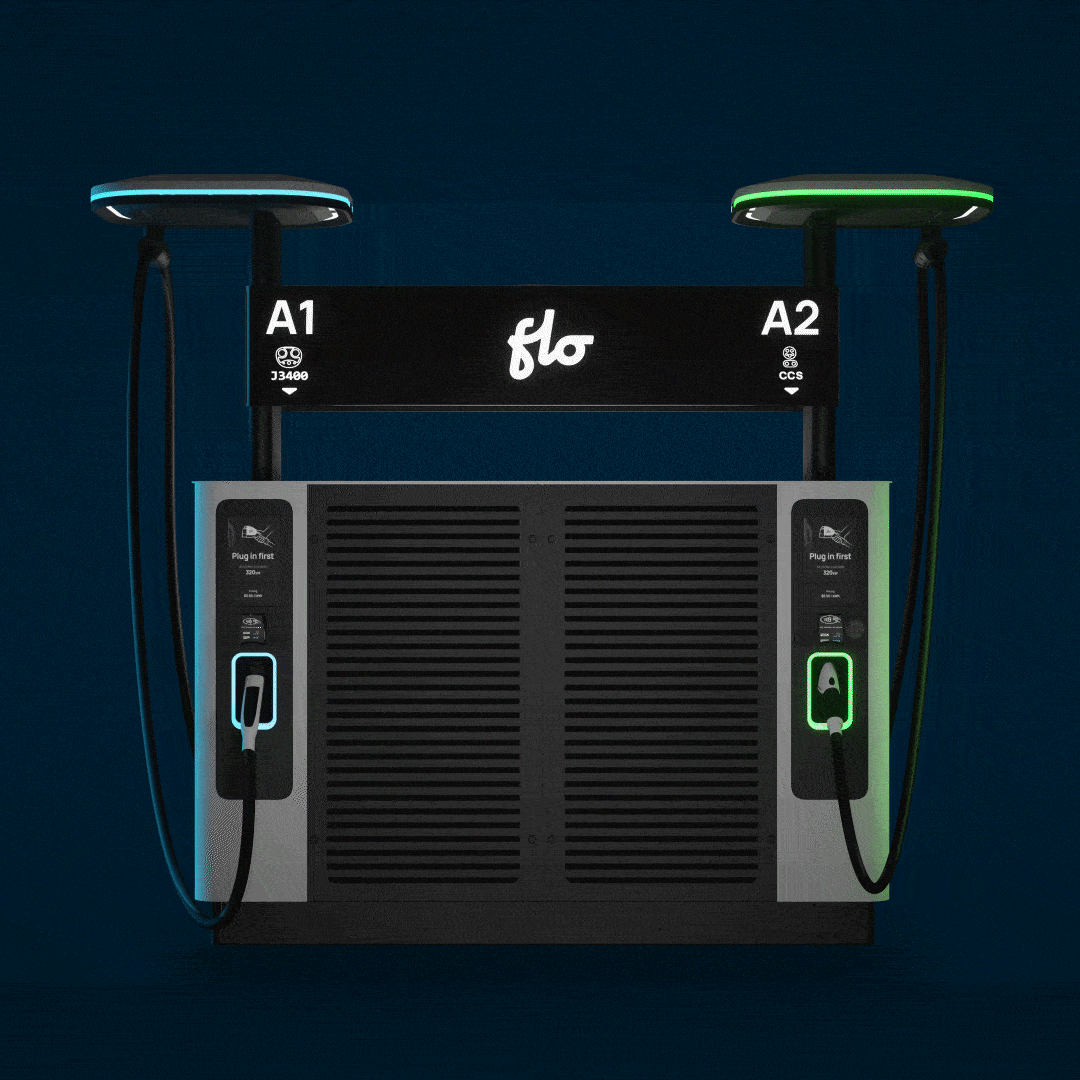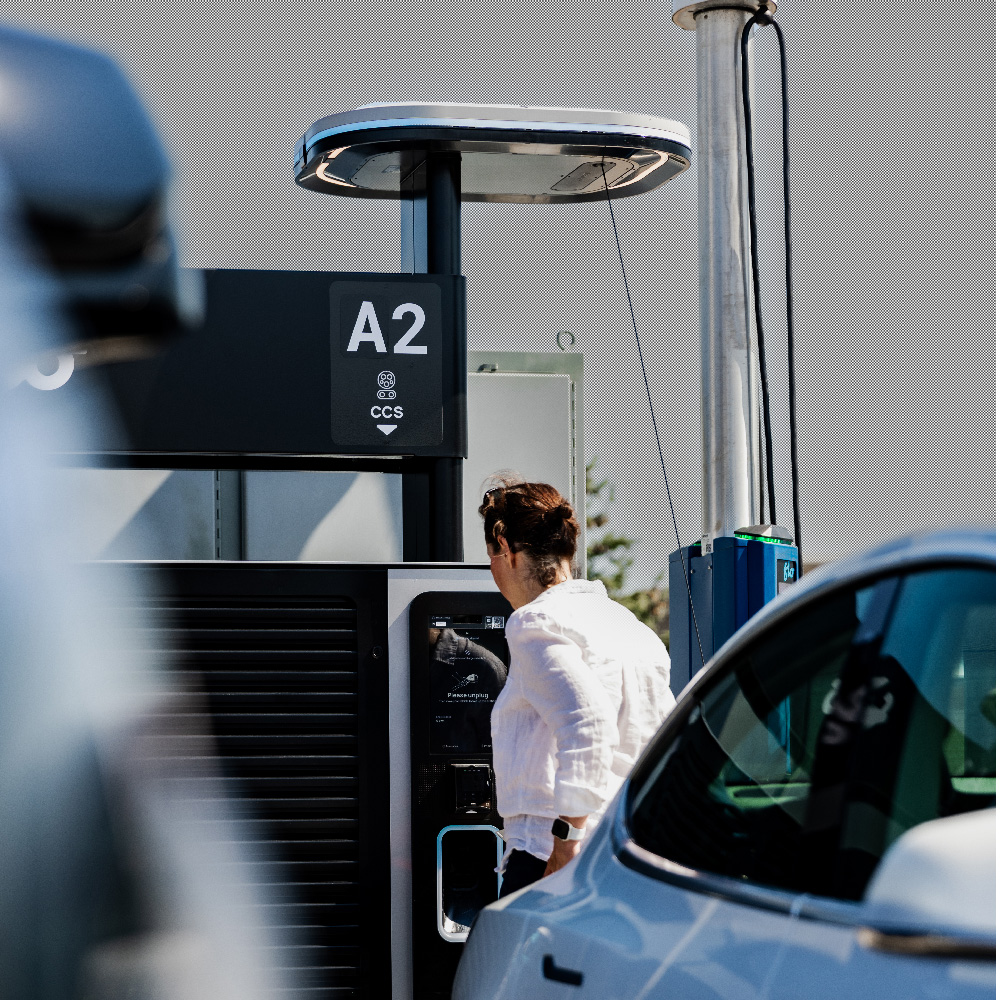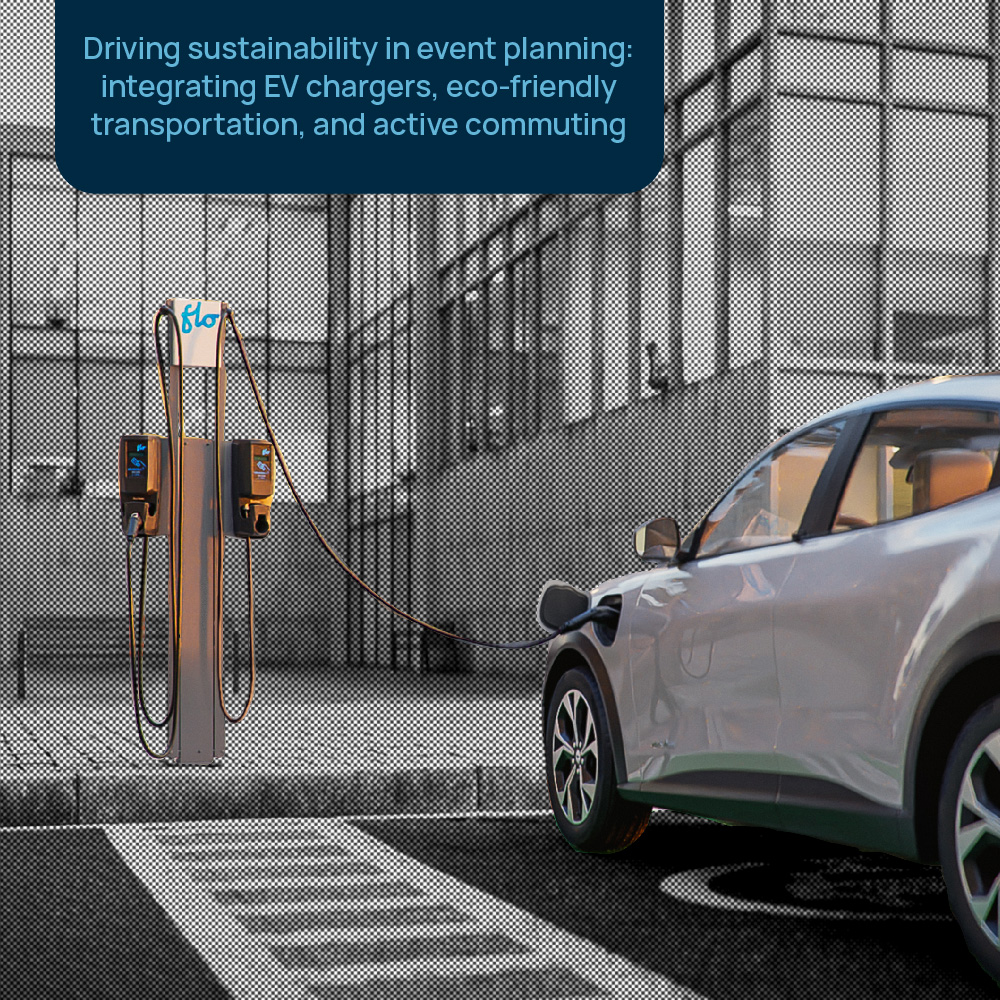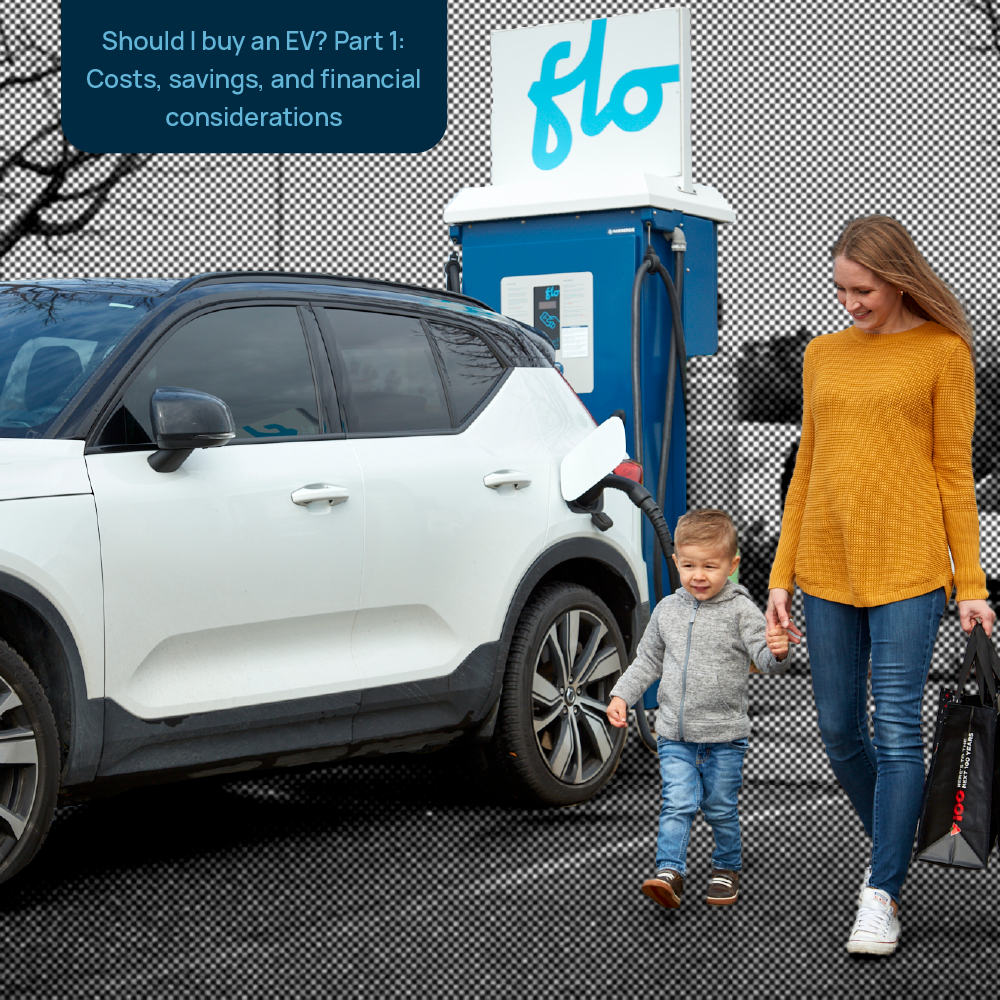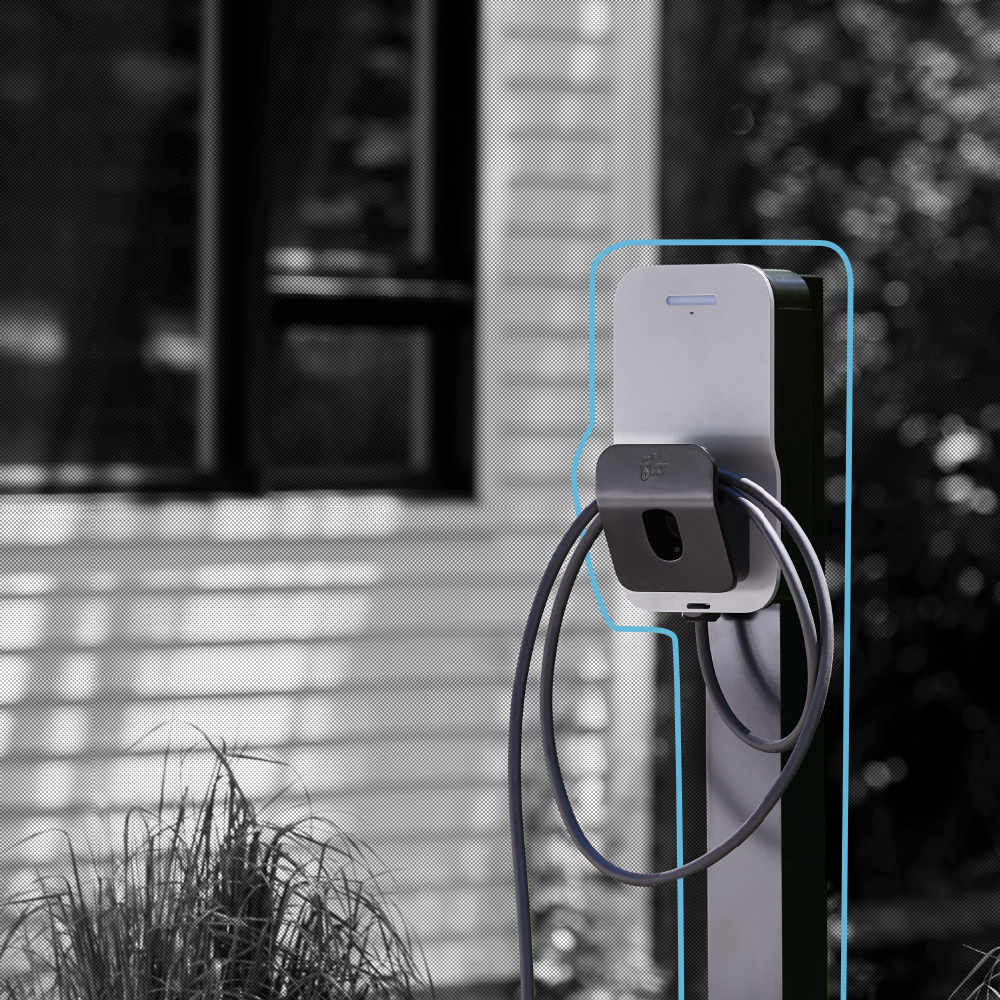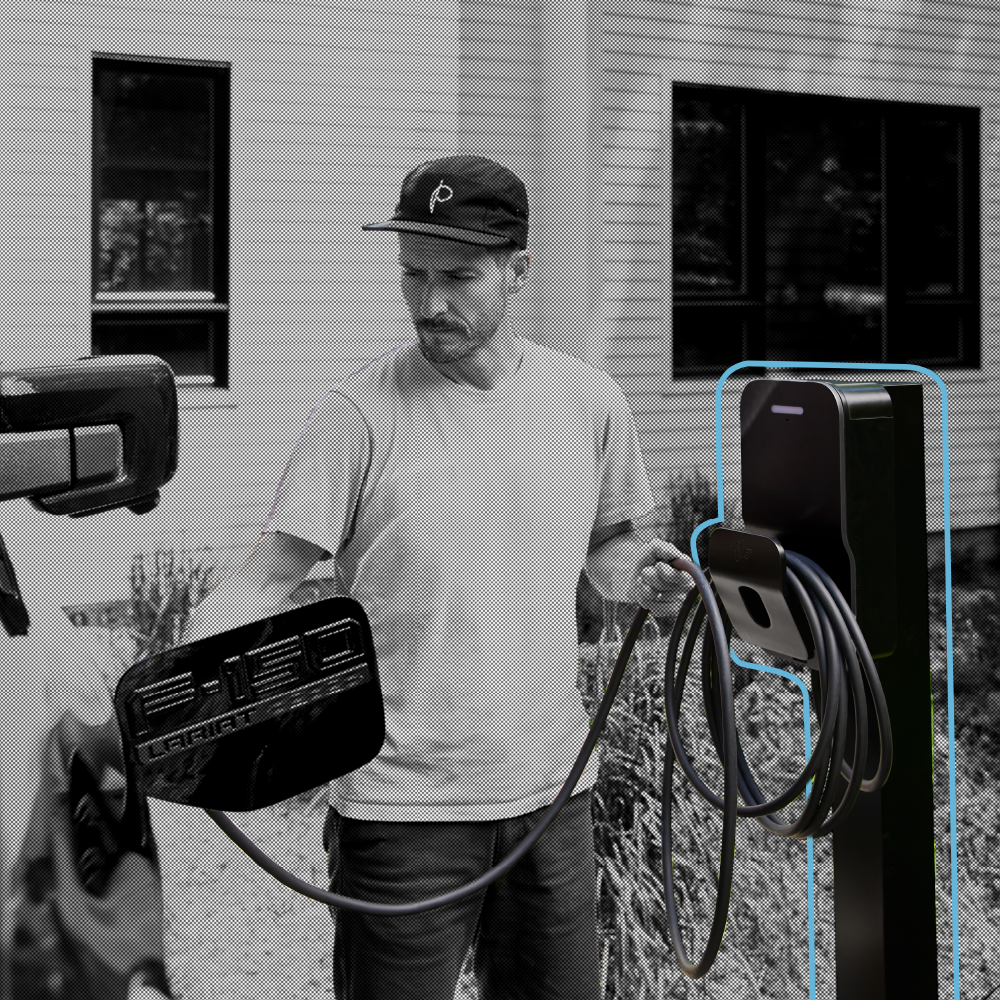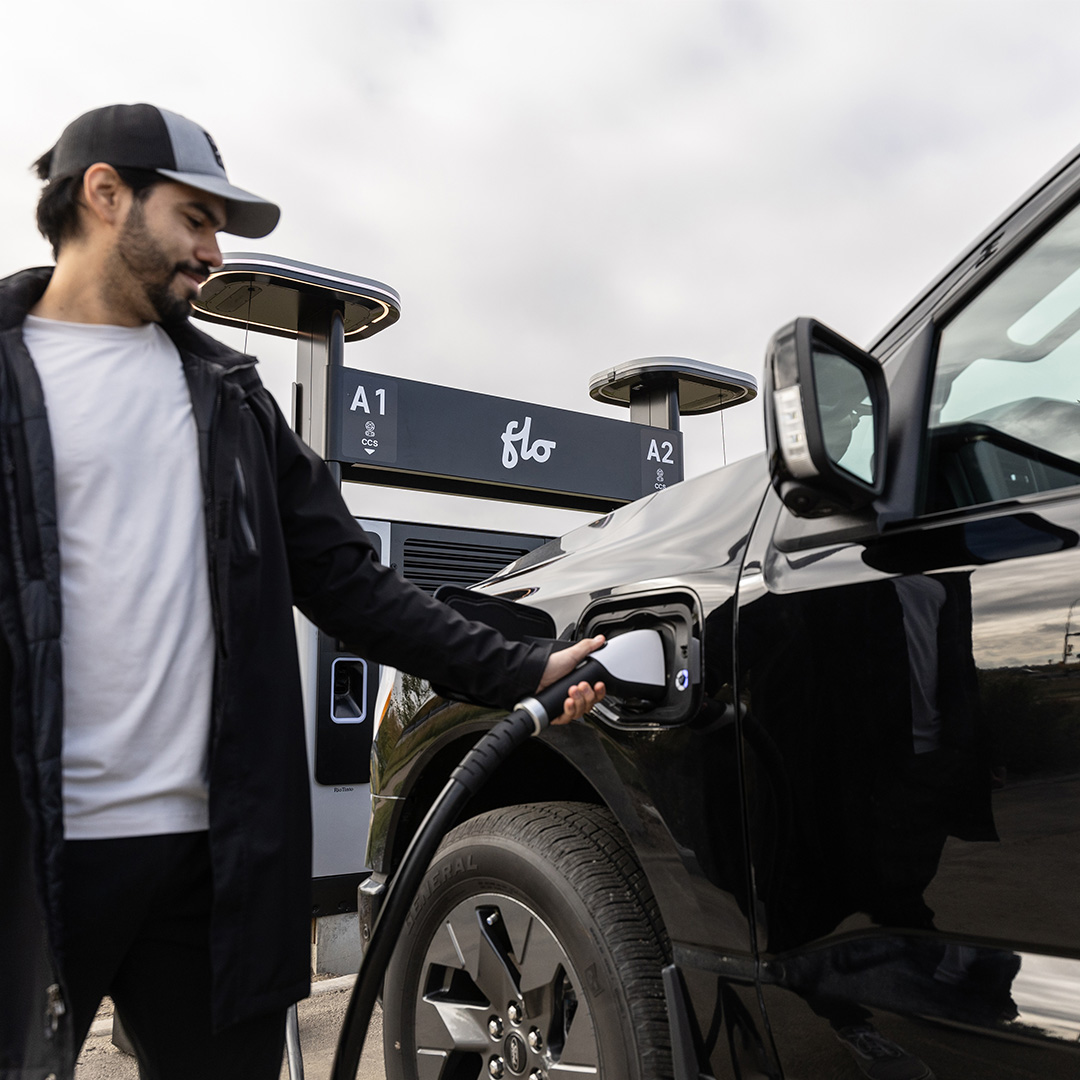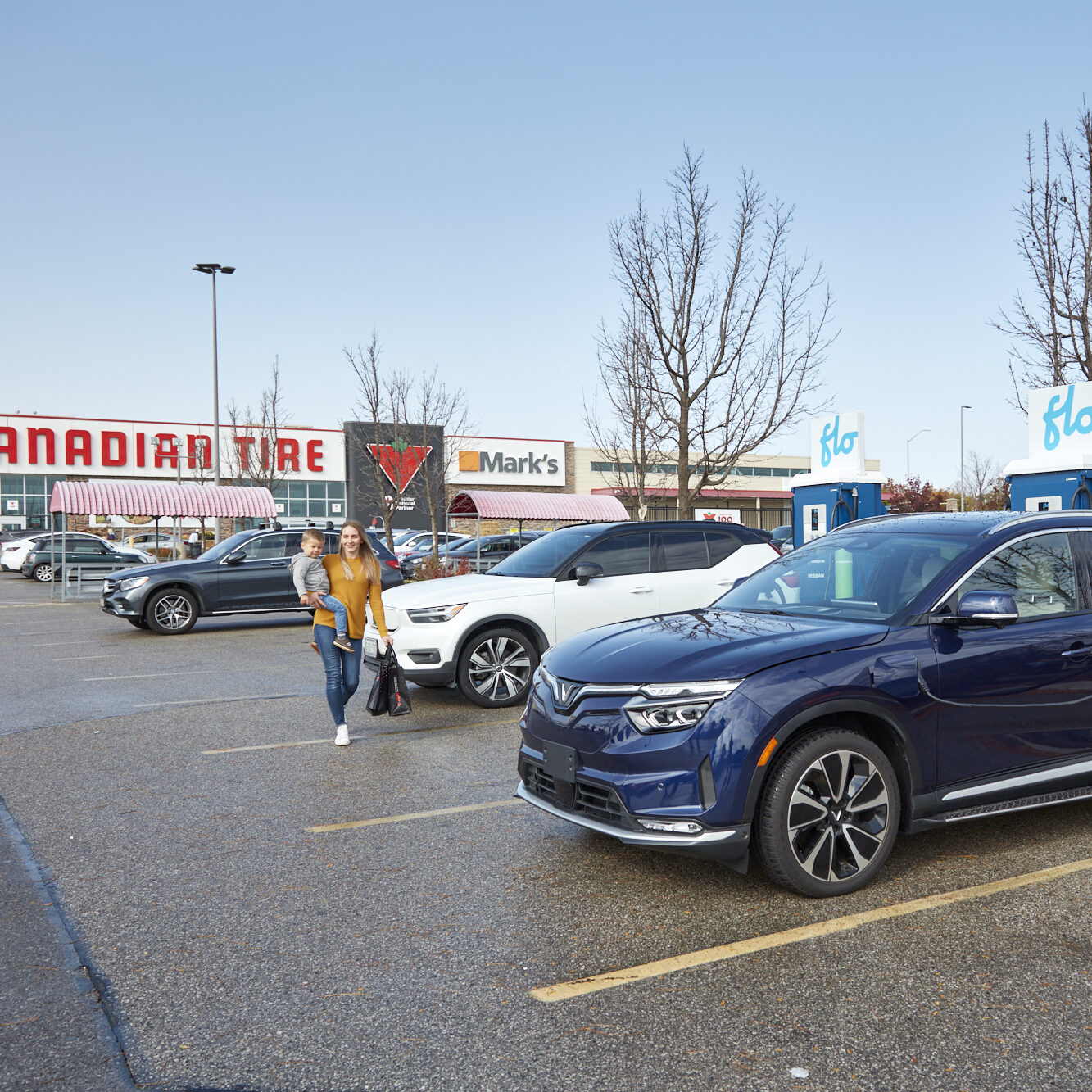Dufferin County: Leading the Charge in Rural EV Adoption
Public chargers:
- 22 x SmartTWO (Level 2)
- 2 x SmartDC 50kW (DCFC)
Municipal fleet chargers:
- 12 x CoRe+ Series (Level 2)
It’s not just cities that have to contend with greenhouse gas emissions. Take Dufferin County, Ontario, a collection of eight municipalities made up of more country areas than city ones. Their natural beauty comes with long distances between homes, shops, and municipal offices. And like many rural counties, public transportation is limited in Dufferin. It’s a key reason why 49% of Dufferin’s greenhouse gas (GHG) emissions come from cars, trucks, and heavy equipment. Armed with statistics like these, Dufferin turned to electric vehicles (EVs) to reduce GHG emissions in its county, and planned the deployment of a reliable EV charging network.
Getting an early start on climate protection
In a fluke of timing, the county’s plan shifted into gear earlier than expected, thanks to Natural Resources Canada’s Zero Emission Vehicle Infrastructure Program (ZEVIP). ZEVIP is a Canadian national initiative geared toward funding EV chargers and their installation in public spaces across the country. It’s an ideal program for a municipality looking to deploy charging infrastructure and encourage EV adoption among residents. The County of Dufferin won their funding in time to inform the planning process.
“We were actually in the middle of writing our community climate plan when the ZEVIP funding came in,” Sara MacRae, Dufferin’s Manager of Climate and Energy, told us. “So right out of the gate, we had funding for charging stations.” The ZEVIP program offered up to 50% in rebates — a full $289,000 to subsidize Dufferin’s purchase and installation of 24 public charging stations1.
Navigating pitfalls on the road to zero emissions
Even with funding in hand and a thoughtful deployment plan, Dufferin County faced challenges. Which chargers would prove to be the most reliable? What charging speed should they offer? Where should Dufferin purchase them? Lacking in-house expertise to answer these questions, Sara and her team spoke to other municipalities, where they collected information — and a few cautionary insights.
One county to the north-east had a DC fast charger break down, which left EV drivers with a limited choice of options to recharge. Worse still, the county in question was unable to get the charger repaired. Disagreements between its US vendor and UK-based maintenance provider left the county in a quagmire, which deepened when shipments of replacement parts experienced delays. “You name it,” Sara told us, “and it happened to them.”
Solving multiple problems by choosing the right supplier
Armed with this and other tales of poor vendor coordination and lack of domestic support, Dufferin went into procurement with eyes wide open. With the help of Kinetic, their Group Purchasing Organization, they chose FLO. A vertically integrated provider of hardware, network services, monitoring, customer service, and maintenance, FLO delivered a turnkey solution that addressed all the logistical issues Dufferin had been warned about.
FLO provides a single point of contact for any pre- and post-installation issues, resulting in worry-free operations for Sara and the Dufferin County team. The company’s fifteen-plus years in the market and considerable network footprint inspire confidence, and FLO’s 98% network uptime2 demonstrates the remarkable reliability of its products. FLO’s Canadian presence also facilitates local stocking of spare parts. And FLO’s full suite of post-sale services like automated billing, remote firmware and software updates, maintenance and station health monitoring, streamline day-to-day charging station operations and issue resolution.
Location, installation, collaboration
For installation, FLO brought in a contractor that they’d worked with successfully for a variety of corporate and government clients. “I brought in a contractor that FLO had worked with successfully for other municipalities, like Region of Peel,” Alan Czechowski, Senior Business Development Manager at FLO, explained. “We knew from experience that they could provide Dufferin with the turnkey solution they wanted.”
“We worked alongside the contractors throughout. They’d say, ‘Hey, this location doesn’t have enough power.’ So we would work out options for power sharing. Any obstacles that came about, we’d solve collaboratively.”
Dufferin chose their EV charger locations where they’d get the most use, placing them at highly visible locations. This also addressed “range anxiety,” which refers to the concern some drivers express about EV battery range. The 22 SmartTWO™ chargers and two SmartDC™ 50kW chargers were installed at municipal offices, a long-term care facility, an arena, and a museum.
Multiple wins for Dufferin
The EV stations have given the county of Dufferin some meaningful victories around emission reduction and public service:
Took a vital first step in reducing carbon emissions
- Since the launch in November 2021, this first round of 24 EV chargers has prevented the equivalent of over 72.1 metric tons of greenhouse gas emissions from entering the atmosphere3.
Established leadership among municipalities
- By securing a substantial ZEVIP grant and launching a successful municipal EV charger program in every office, Sara and her team established themselves as local leaders in climate protection. A subsequent ZEVIP grant subsidized the purchase of EVs for the county’s fleet as well.
Increased public and tourist engagement
- Installing chargers at high-traffic corridors allowed Dufferin to appeal to both daily commuters and travelers enjoying a trip to “cottage country”. These chargers are easy to locate on station maps through FLO’s mobile app and third party map applications, making them accessible to everyone. “Folks heading to the North are getting some really nice use out of them,” Sara noted.
Pinpointed high-use areas
- Data collected from current stations revealed high usage at key locations like the courthouse in Orangeville, where the station has logged over 5,774 charging sessions since the November 2021 launch4. By mapping demand, Dufferin is collecting information to help guide where future installations will take place.
Heightened interest in EV adoption
- Surveys taken after the launch of Dufferin’s FLO EV network showed that a significant percentage of residents intend to make their next vehicle an EV. Sara mentioned that multiple municipal employees have bought EVs since the initiative launched.
EV charging as a new municipal service
- While the stations are pay-to-use, Dufferin County is pricing the service below standard rates to encourage usage. EV chargers are accessible at central locations, benefiting all residents. Now, drivers can charge their vehicles while they’re enjoying a visit to the museum or local arena, adding range to make it easier to reach their next destination.
Lessons learned
Sara and her team at Dufferin County collected valuable insights about deploying EV charging infrastructure:
The importance of fast, reliable service
- Reliable service and quick maintenance responses are crucial. If drivers see too many out-of-order stations, they’ll lose trust in EV charging. Fortunately, Dufferin’s FLO chargers have maintained 99.8% uptime over the last 12 months alone.
Committing to accessibility
- Sara and the Dufferin team understood the importance of making the stations accessible to a wide range of users, including seniors and people with disabilities. Lacking any authoritative accessibility guidelines tailored to EV charging stations, Dufferin created their own, based on the Accessibility for Ontarians with Disabilities Act (AODA) and, where feasible, best practices from the UK and British Columbia. This includes curb cuts for walkers and wheelchairs, lighter charger handles and cables, user-friendly cable management systems, and making sure interface screens are easy to read.
Building redundancy
- Having more than one charger per location is vital. This provides coverage if one charger goes down and accommodates high demand at busy locations like the courthouse. That’s why Dufferin planned two chargers minimum at most locations.
Planning ahead
- Preparation is essential for timely ZEVIP funding. Sara recommends planning at least a year ahead and estimating future charging needs. “It’s really thinking about, ‘Where do we want stations in three years?’” She advised. By settling on which site locations they wanted to electrify, and selecting the right amount of chargers and speed mix to cater to current and future EV adoption rates, they were able to submit their ZEVIP application in plenty of time to hit the program’s deadline.
FLO’s role in Dufferin’s success
The County of Dufferin knew what they wanted from an EV charging network. Choosing FLO resulted in multiple successes:
Reliable EV charging solutions
Dufferin wanted a partner known for reliability. FLO, a Canadian company with a commitment to 98% network uptime, delivered SmartTWO and SmartDC 50kW chargers that not only withstood the local climate’s challenges, but have exceeded that standard with 99.8% reliability over the past year. FLO also provided effective maintenance and support, addressing operational issues promptly and efficiently.
Advice and assistance
FLO’s various teams, from sales to application engineering to deployment, all worked together to find the right product solutions that suited each parking environment. They assisted with the ZEVIP application by recommending best practices and supplying the relevant supporting documentation. And by collaborating with the installation team and Dufferin, they were able to design an electrical site plan that used existing power capacity and controlled costs associated with electrical upgrades by leveraging FLO’s Power Management technologies.
Centralized project management
FLO’s centralized project management proved crucial. “I have like 15 projects at any given time,” Sara explained, “So the easier FLO can make it, the better.” FLO managed the entire installation process, made recommendations for contractors from their trusted network, and provided application engineers to build site design plans and consult on the installation. Equally important to Dufferin, FLO provided a single point of contact for communication, grant reporting, and billing.
Ongoing service and support
The value of FLO goes beyond sales and installation. Their customer service team provides both station owners and drivers with live customer support and station monitoring. FLO’s Network Operation Center (NOC) even detects potential issues proactively and either resolves them remotely, or, if needed, dispatches a technical expert to the location.
Because FLO designs and operates its EV stations and its network, the NOC team is able to constantly improve its remote capabilities, developing new monitoring features to detect problems faster — in many cases, remotely resolving issues before a user encounters them.
Plus, as the EV market evolves, FLO is able to provide over-the-air firmware updates designed to keep charging stations compatible with new vehicle models as they hit the streets. And the highly-rated FLO mobile app constantly evolves to provide a better charging experience — including a trip planning tool.
Next steps for Dufferin’s climate program
With the public-use phase completed, a subsequent round of ZEVIP funding enabled them to launch the next phase: fleet charging. Not long after the public chargers launched, Dufferin was able to install an additional 12 FLO CoRe+™ Level 2 chargers for municipal vehicles, and they’re slowly replacing older cars with EVs. “We’re not going to buy EVs if we have nowhere to charge them,” Sara explained. “Plus, our people love driving them. Now, most every municipal car we’ll replace will be electric.” Since launching their fleet of 12 chargers in 2022, they’ve prevented an additional equivalent of 3.9 metric tons of greenhouse emissions5.
Future initiatives include Dufferin’s “Electrifying Backroads” campaign to raise EV awareness in rural areas, and a plan to encourage rural tourism by partnering with neighboring counties to fill EV charger gaps. This could lead to new charging station deployments at hiking trailheads and other parkland locations.
How a municipal success is gauged
The effective deployment of EV chargers is a victory, but the County of Dufferin celebrates even bigger reasons for their success:
Launching public EV charging in a big way
Since the program launched, Dufferin’s citizens have logged over 10,000 EV charging sessions, totaling more than 14,000 hours of charging time6. It’s a vital stake in the ground as Dufferin builds out infrastructure that supports continued adoption of electric vehicles.
Steady rise in Charger use
Over the course of Dufferin’s two full years of public EV chargers (2022 and 2023), station utilization grew by 28%, charging sessions increased by 22%, and the amount of energy transferred grew by 54%. It’s proof to other municipalities that when you deploy reliable stations, people will use them, rely on them, and consider EVs when purchasing their next vehicle.
Achieving climate goals
The EV charger campaign’s success in reducing greenhouse gas emissions is a celebration-worthy achievement for Sara’s team. “At the municipal level, you can really see the benefits of your work,” Sara explained. “I can gather the numbers and see how many greenhouse gas emissions we’ve reduced by doing a project. You can quite literally see the impact. It’s really motivating.”
Inspiring other municipalities
Dufferin’s success has motivated neighboring counties to adopt similar plans. Sharing their strategies and results, Sara and her team have stressed the importance of community engagement, proper planning, and reliable partners like FLO. Sara even invited FLO representatives to say a few words at the launch event. This ongoing partnership helps territories in Ontario (and beyond) become greener, one EV charging session at a time.
Client: Sara MacRae – Manager of Climate and Energy, Dufferin County
Sara is the Manager of Climate and Energy for Dufferin County, leading the development of the Community Climate Action Plan and other climate strategies. With over 15 years in climate action, she excels in partnership building, fundraising, and designing impactful GHG-reduction initiatives, emphasizing socially just, community-centered approaches.
Schedule a consultation with a FLO expert today!
One of our experienced sales consultants will provide you with all the knowledge you need to electrify your community.

